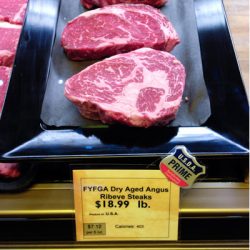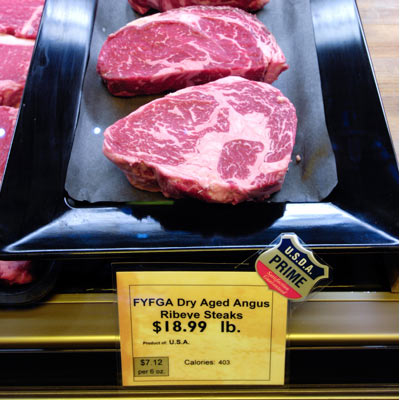
Born in the USA. But in the future, that may be classified information. (Photo by USDA.)
Mystery meat is about to make a comeback.
Since 2009, the U.S. government has required grocery stores to label meat with its country of origin. Sounds logical, right? Give customers basic information about the products they’re buying.
But Mexico and Canada whined about the rule to the World Trade Organization, and today the WTO slapped it down. That’s what happens when we “outsourc[e] our legal system to international commercial bodies that push corporate interests,” says Lori Wallach, director of Public Citizen’s Global Trade Watch.
The labels won’t disappear immediately, and they may not disappear entirely. But over the next year or so, the U.S. will have to change its rule so it’s not considered a trade barrier. That could mean making labeling voluntary, or labeling meat according where the livestock is killed or processed, ignoring where it’s born or raised.
Such changes would make it harder for Americans to know where their meat comes from, and harder for health officials to track down the origins of food-borne bacteria, says Public Citizen.
Yet another reason to hate on the Big Biz-backing, mustache-twirling oligarchs at the WTO. And another reason to buy your meat directly from the friendly folks at your farmers market — or give up meat altogether …



